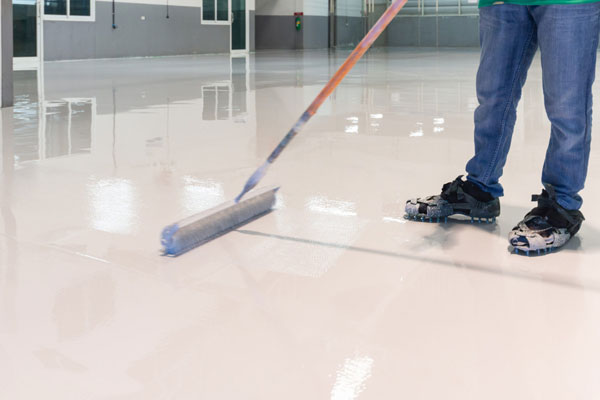Regardless of what door-to-door salesmen and paid google ads would have you believe, there is no absolute ‘best floor coating’ for every type of user or usage. Each type of floor coating has its own ups and downs, which make them custom-tailored for specific types of usages. Our experts have been in construction for years and thus understand the helplessness of people picking a floor coating for the first time. In this article, we will be looking into the types of floor coatings and how to pick between them for your purpose.
Types of floor coatings:
As civil engineering technology has developed over the years, so have the number of options for concrete floor coatings. However, the industry standard has usually lied with either Epoxy coatings or Polyurea coatings since they are usually the most dependable and durable. Most engineers will suggest sticking to either of the two since they are also the most flexible in terms of use, as usage of buildings and spaces may change over time. Other types include polyaspartic coatings for abrasion resistance, acrylic coatings for UV protection, and ceramics for their specialization in refractoriness.
Given that there are so many options, how do you pick a specific coating for your floor?
Step 1: Understand your purpose and location
At their very basics, floor coatings are tough protective layers in cases where corrosion or wear is expected on floors. An epoxy floor coating is used to resurface or repair a damaged floor and can be set in various ways while a polyurea floor is always thermosetting. This means epoxy is better for a factory or workshop while polyeurea might be better floor mall or hospital hallways and acrylic is better for a garage floor.
Even though driveways and external staging grounds often require high wear-resistant floor coating- epoxy is unsuitable for outdoor conditions irrespective of its wear resistance. In these cases, the best idea is to go for polyurea, which is also UV protected.
Step 2: Recognize the type of wear your flooring might face
Even though the primary purpose of a floor coating is to protect your floor from wear, they ultimately end up being the outlook of your floor- and thus, having a damaged floor not only causes hindrance in work but also looks bad. If your floor is about to go through excessive wear and tear- go for an epoxy floor since cracks on it can be repaired pretty easily. While high-temperature conditions, situations in which there is chemical wear (oil drip) call for polyurea floor coating.
Step 3: Understand the specializations you need
Almost all types of floor coatings can be specialized to your use due to the development of concrete-making technology. Thus, for increased durability and cost efficiency, it is useful to note down your specialized needs for your contractor. Specialized needs might include- slip protection, nice appearance, thermal shock resistance, abrasion resistance, antistatic properties, electrical resistance etc.


